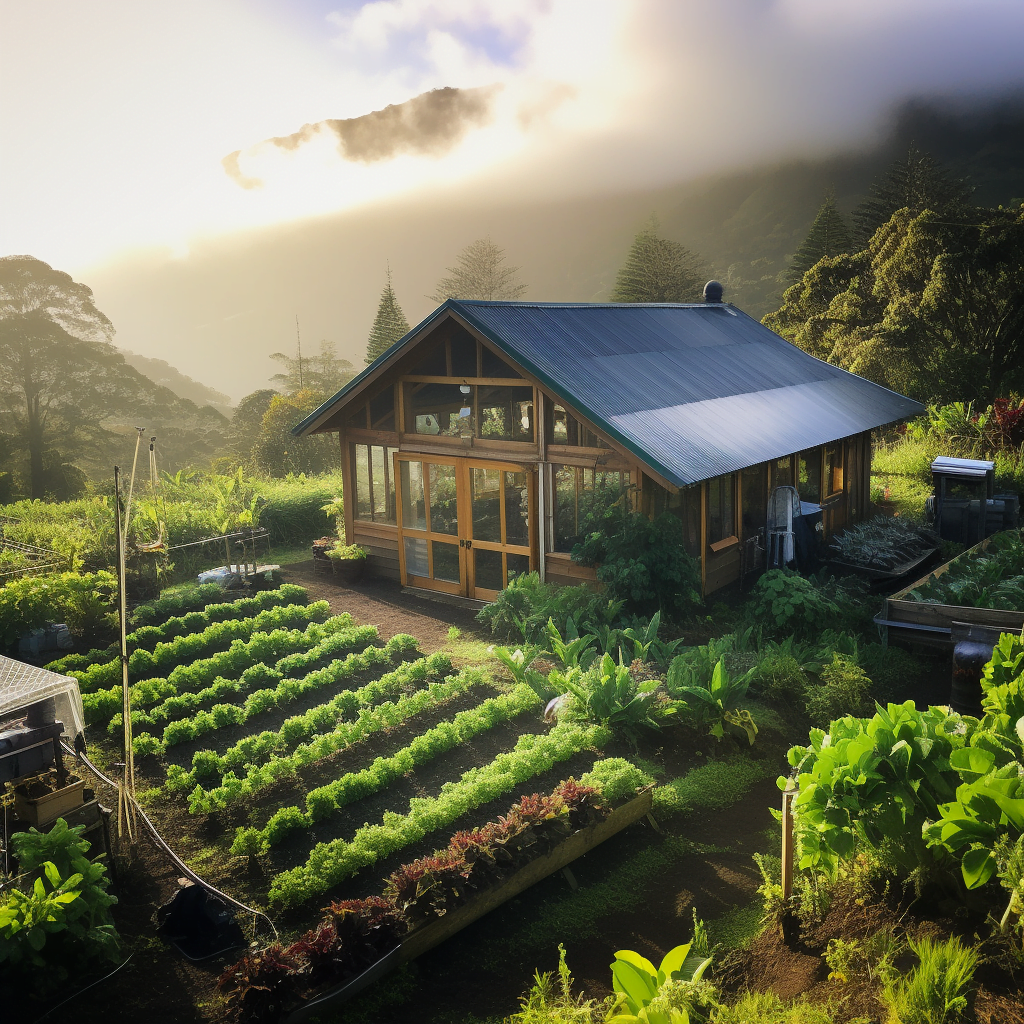Introduction to off-grid living
Off-grid living is when individuals or communities disconnect from public utilities and become self-sustainable. This lifestyle has recently become popular, due to its environmental benefits and a simpler way of life.
It enables self-sufficiency by relying on renewable energy sources like solar panels and wind turbines. This decreases their carbon footprint and promotes sustainability.
Also, it gives freedom from public utilities, such as water and electricity, and their rising costs. Off-grid living can simplify life and create opportunities for creativity, away from societal norms.
Furthermore, it allows people to reconnect with nature, bringing physical and mental well-being. This helps establish a deeper bond with the environment and live in harmony with it.
It is important to be aware that off-grid living isn’t illegal in most places; however, there may be zoning restrictions or building codes that must be taken into consideration. It is necessary to research local laws before starting this lifestyle.
Recent reports from The New York Times suggest an increasing number of people are embracing off-grid living to reduce their environmental impact and connect with nature. Off-grid living: where legality and the desire to avoid social interaction magically coincide.
The legality of off-grid living
To understand the legality of off-grid living, delve into the section titled “The legality of off-grid living.” Explore the sub-sections that discuss the legal considerations for living off-grid. Gain insights into the regulations, permits, and potential implications of embracing a self-sufficient lifestyle disconnected from conventional utility systems.
Legal considerations for off-grid living
When it comes to off-grid living, there are some legal matters to keep in mind. Zoning regulations, building codes and property rights all need to be adhered to. See the table below for a summary:
| Consideration | Description |
|---|---|
| Zoning regs. | How land can be used |
| Building codes | Construction and safety standards |
| Property rights | Ownership and usage of land |
Do research and understand local laws. It may be wise to speak to professionals like lawyers or real estate agents who specialize in off-grid properties.
Interest in off-grid living is increasing as people search for alternative lifestyles or want to reduce their environmental impact. Laws have changed in some areas to allow renewable energy systems or compost toilets. So, why not enjoy nature without cable?
Benefits of living off the grid
To fully understand the benefits of living off the grid, delve into the financial advantages of this lifestyle. Discover how off-grid living can offer financial independence and reduced expenses. Additionally, explore the potential for self-sufficiency and environmental sustainability within this unique way of life.
Financial advantages of off-grid living
Off-grid living can bring financial advantages. Firstly, it lessens utility bills with solar panels or wind turbines as the source of electricity. It also enables self-sufficiency as people can grow food and harvest rainwater, thus cutting down water and grocery bills. Moreover, this living choice eliminates expensive infrastructure such as sewer systems, resulting in lower maintenance costs.
Besides, off-grid living encourages a minimalist approach to consumption. By reducing material possessions, people can save money and prevent debt. This also leads to less waste generation and benefits the environment.
In addition, it offers income generation. By starting eco-friendly businesses, individuals can attract tourists and earn revenue. Furthermore, tax credits are offered in some areas to further reduce the financial burden.
To maximize the financial advantages, energy-efficient appliances and systems should be invested in. Also, people should explore entrepreneurship opportunities suitable for their remote location.
This lifestyle choice not only provides financial benefits but also promotes independence and sustainability. By embracing it, individuals can lead a more fulfilling life while contributing positively to both their personal finances and the environment. Plus, you won’t have to worry about liking your ex’s vacation photos on social media!
Challenges and obstacles faced by off-grid communities
To overcome challenges and obstacles faced by off-grid communities, explore the environmental regulations impacting off-grid lifestyles. Understand the implications of these regulations on sustainable living and the balancing act between environmental stewardship and self-sufficiency. Discover the solutions and strategies adopted by off-grid enthusiasts to navigate these regulations while maintaining their independent way of life.
Environmental regulations impacting off-grid lifestyles
Environmental regulations have a big effect on off-grid lifestyles. They’re made to protect the environment and guarantee sustainable practices. Let’s take a look at how these rules can affect off-grid living:
- 1. Renewable Energy Rules: Environmental regulations often limit the types of renewable energy accessible in off-grid communities. This can make it hard for residents to get hold of clean and sustainable power.
- 2. Waste Management Rules: Off-grid communities must obey strict waste management directions set by environmental regulations. In remote locations, this can be tricky.
- 3. Land Use Regulations: Off-grid living sometimes involves using land for various purposes, such as farming or building eco-friendly structures. But, environmental regulations may limit certain activities, limiting residents’ freedom.
- 4. Water Usage Regulations: Many off-grid communities depend on natural sources of water for their everyday needs. Environmental regulations could restrict water usage and collection, making it harder for residents to get their daily needs.
- 5. Building Codes and Standards: When constructing homes or other structures, folks must follow various building codes and standards mandated by environmental regulations. This can add difficulty and cost to the construction process.
Plus, here are some unique details about environmental regulations and off-grid lifestyles:
Off-grid communities struggle to keep up with changing environmental regulations due to limited info and lack of resources.
Let’s look at an example. An off-grid community in rural California was in legal trouble for installing solar panels without the right permits that environmental regulations needed. The community members argued that their off-grid lifestyle and use of renewable energy should make them exempt from certain rules. This case highlighted the complexity of environmental regulations in off-grid communities.




